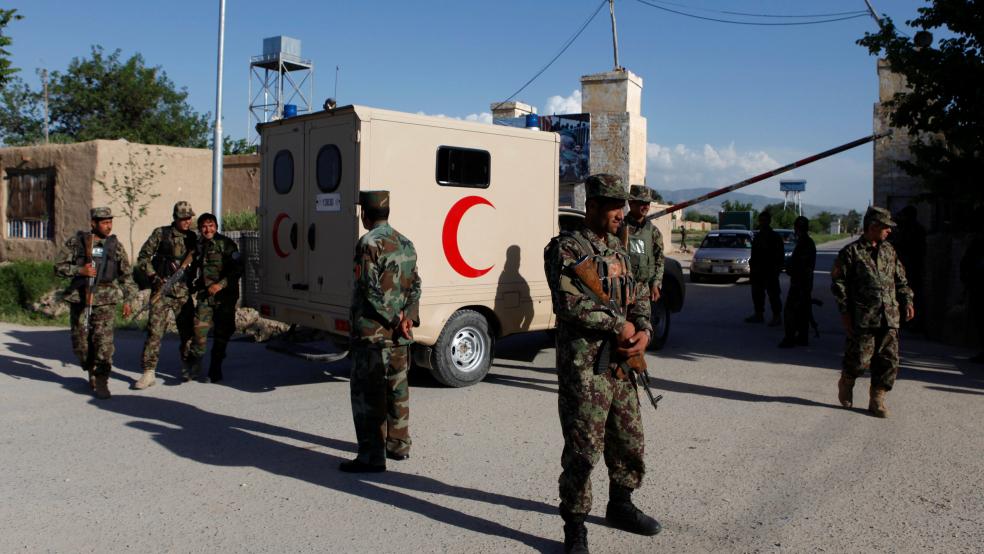KABUL/PESHAWAR, Pakistan (Reuters) - The United States aims to press the Taliban on the battlefield to convince them that they will have to negotiate peace, a senior U.S. diplomat said on Tuesday, a day after President Donald Trump rejected talks following a series of attacks.
Speaking to reporters at the White House on Monday, Trump condemned the Taliban for recent carnage in the Afghan capital Kabul, and said the United States was not prepared to talk now. He pledged to "finish what we have to finish". Trump's comments suggested he sees a military victory over the Taliban, an outcome that U.S. military and diplomatic officials say cannot be achieved with the resources and manpower he has authorized.But U.S. Deputy Secretary of State John Sullivan told a news conference in Kabul there was no change in the U.S. policy of forcing the Taliban through military pressure into talks.Trump's comments were a reflection of the violence over recent days which indicated "at least some members of the Taliban are not interested in having a discussion about a peaceful future", Sullivan said."That doesn't change the long-range strategy of our policy which it to be firm militarily to convince the Taliban, or significant elements of the Taliban, that there isn't a military solution to the security situation here, that ultimately peace and security of Afghanistan will be determined by peace talks."Trump last year ordered an increase in U.S. troops, air strikes and other assistance to Afghan forces. The U.S. ambassador to the United Nations, Nikki Haley, said this month the strategy was working and pushing the insurgents closer to talks.That was before a suicide bomber penetrated the highly guarded center of Kabul on Saturday and detonated an ambulance laden with explosives, killing more than 100 people and wounding at least 235. That attack followed a brazen Taliban assault on the city's Intercontinental Hotel on Jan. 20, in which more than 20 people, including four Americans, were killed.The Taliban said the attacks were a message to Trump that his policy of aggression would not work. 'WAR-MONGERING'Earlier, a spokesman for Afghan President Ashraf Ghani said the Taliban had crossed a "red line" with attacks in Kabul and lost the chance for peace, and had to be defeated."We have to look for peace on the battlefield," said the spokesman, Shah Hussain Murtazawi.The surge of violence has also raised new questions about U.S. relations with Pakistan, weeks after Trump denounced it for what he said was its failure to crack down on Taliban safe havens on its soil, and ordered big cuts in security aid.Pakistan denies accusations that it fosters the Afghan war, and has condemned the recent attacks in Afghanistan.A spokesman for the Taliban, fighting to oust foreign forces and defeat the U.S.-backed government, said earlier they never wanted to talk to the United States anyway."Their main strategy is to continue war and occupation," Taliban spokesman Zabihullah Mujahid said in a statement."Donald Trump and his war-mongering supporters must understand that every action has an equal and opposite reaction. If you insist upon war, our mujahideen will not welcome you with roses," he said.The United States believes the Haqqani network, a faction within the Taliban, was behind Saturday's bomb blast in Kabul.It and Afghanistan have long accused Pakistan of supporting the Taliban, and the Haqqani network in particular, as assets to be used in its bid to limit the influence of old rival India in Afghanistan.Pakistani officials were not immediately available for comment on Trump's rejection of peace talks but its embassy in Kabul cited Pakistani clerics as declaring suicide attacks unIslamic. (Additional reporting by Mirwais Harooni; Editing by Clarence Fernandez and Gareth Jones)U.S. still aims to push Taliban into Afghan peace talks: official

OMAR SOBHANI



